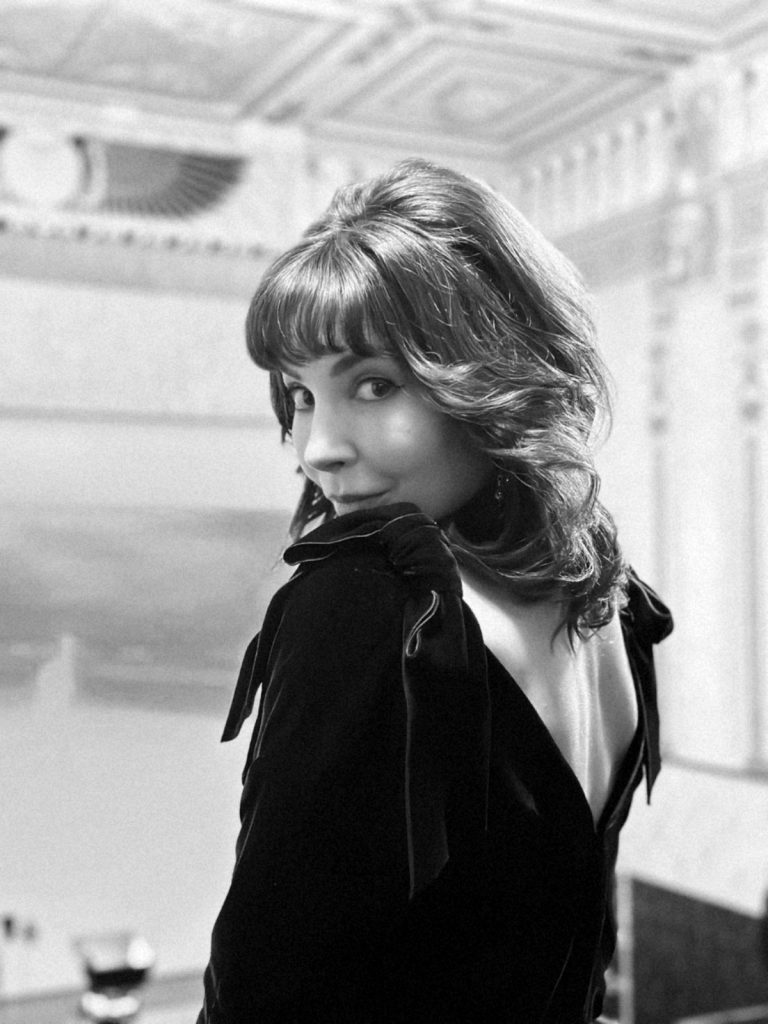
- Who is Alix Bénézech?
I try to learn a little more about who she is every day, haha.
I asked the internet and apparently: Alix Bénézech is a French actress, seen in theater, in cinema (Mission: Impossible – Fallout directed by Richard Linklater with Tom Cruise, The 15:17 to Paris directed by Clint Eastwood, BIS directed by Dominique Farrugia) and in series (Nina, Emily in Paris, Whiskey Cavalier). Winner of several acting awards, she pursues an international career between Paris and Hollywood. Soon to appear in Nouvelle Vague, directed by Richard Linklater, releasing in theaters in France on October 8 and later on Netflix, in the role of Juliette Gréco.
I can also add that I am passionate about 19th-century literature, especially Marcel Proust, an author I studied for my Master’s in Modern Literature. I can also say that after spending time with me every day, my character is absolutely similar to that of a cat.
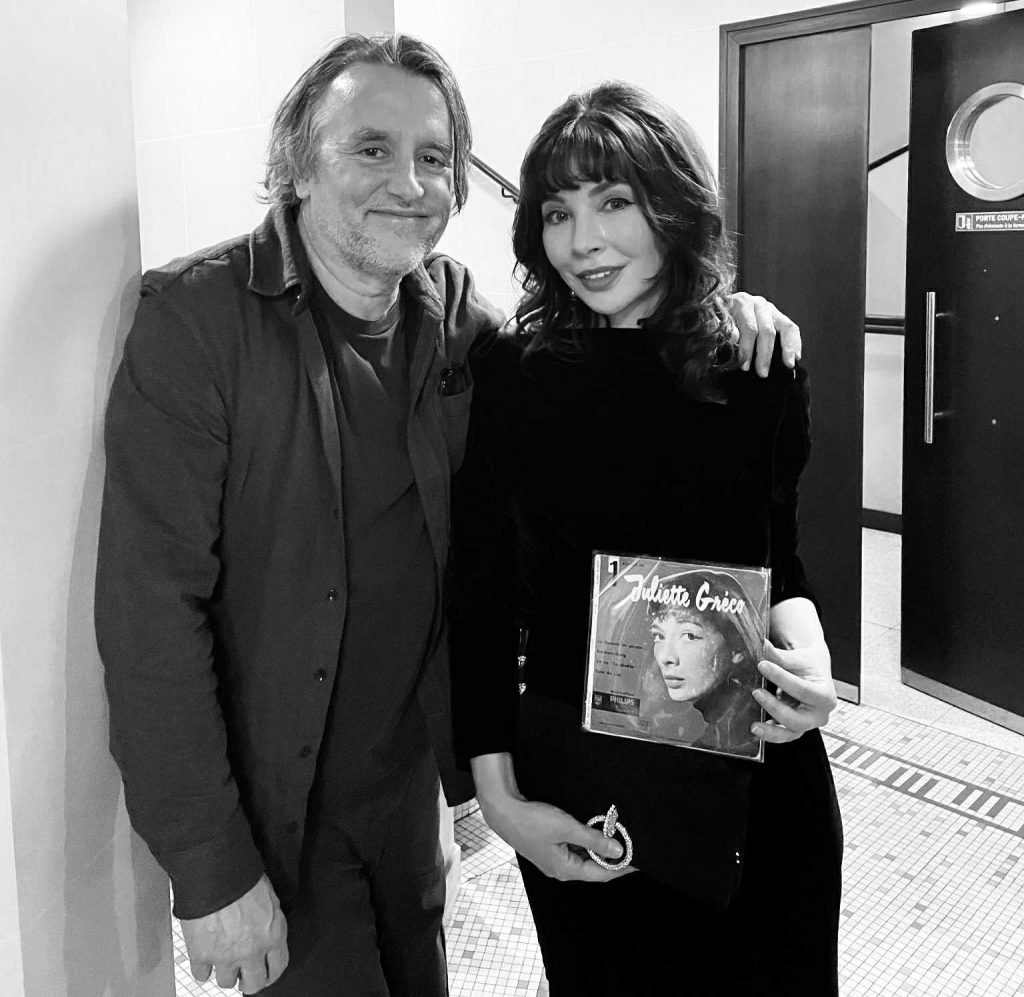
- How did you approach the role of Juliette Gréco in Richard Linklater’s Nouvelle Vague?
I knew Juliette Gréco by name, but I knew little about her life. So I investigated, as I like to do for each role entrusted to me. I discovered an exceptional woman who had an extraordinary life, marked by war, silent for a long period until meeting Boris Vian—a visionary woman, a woman who created an artistic movement, who was the muse of Saint-Germain-des-Prés, who worked with Sartre and all the existentialists (such a beautiful word, existentialist), ahead of her time, a feminist before the Me Too era, an inspiring and free artist with a key word: LOVE, whether it was love for the men she loved, notably Miles Davis, but also love in every gesture of her art and life—a woman of faith, without referring to any particular religion, even though she liked to say “may God hear you” and associated with priests. By reading her books, listening to all her interviews, listening to all her songs, and her singular voice, again and again, I found many points of resonance, soul connections.
Without going into details of my personal life, as I am quite private about it, Juliette became like a big sister, a best friend, and very quickly, already at the first casting, beyond the physical resemblance I had already been told about, I had become Juliette Gréco—not as an imitation, but simply by letting her live through me as if I were a new Juliette Gréco.
Juliette did me a lot of good at that moment in my life; I really needed to have this imaginary yet so real encounter for me.
Then I met Richard Linklater at the callback with Guillaume Marbeck, and it was magical. I saw Jean-Luc Godard in person, I just had to improvise, live, be Juliette—everything was fluid. I remember a moment when Guillaume Marbeck, who was very generous, said something that resonated both for Juliette Gréco and for me: he said, “I think French cinema underestimates you.” I remember containing my emotion because if I cried, it would no longer have been Juliette Gréco. And it truly resonated, because at that moment I felt a little like an outsider in France. Since then, I have returned to film sets and feel the wind at my back—I believe that’s cinema: waves. I’m happy to have learned to surf and to ride this new wave joyfully.
At the end of the improv, Richard Linklater, who had remained very discreet, observing and listening, with great gentleness said to me, “Bravo.” At that moment I thought he said it just to please me, out of politeness for the work accomplished. I left the casting and cried in the street, taking off Juliette’s retro heels and putting my sneakers back on—I cried because I felt like I was saying goodbye to an entire world of cinema and creativity that I wanted to continue exploring. Then I got the call from Stéphane Batut, the casting director, in January 2024, and I felt immense gratitude, exactly the same as when my agent had told me I was cast in MISSION: IMPOSSIBLE – FALLOUT. I thought, “You did a good job, you are on the right track.” And I immediately went back to work to prepare for filming.
Then there was a moment I remember before shooting, during costume fittings. I met costume designer Pascaline Chavanne, her entire team, Elsa Heizmann, and all the CHANEL teams to try on Juliette Gréco’s costumes. I went to the legendary Gabrielle Chanel apartment on Rue Cambon in Paris, and I remember the awe I felt climbing the stairs of this iconic place. And the emotion I felt trying on the authentic CHANEL suit that Juliette Gréco had worn. I thought everything was aligned, and that I was about to be part of a cinematic adventure that would likely go very far. I had a vision at that moment, and everything has been confirmed since.
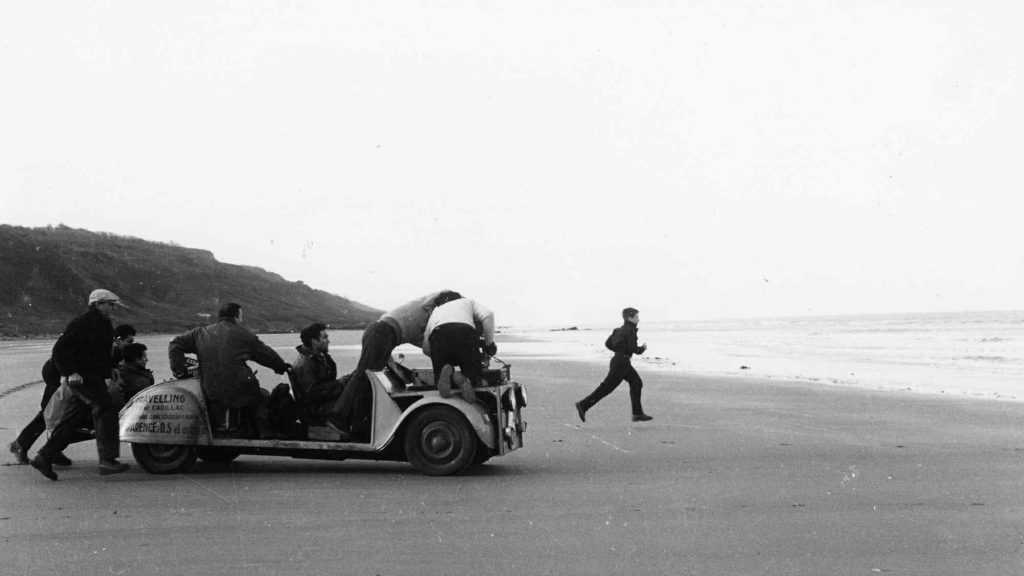
- Nouvelle Vague is a film much loved by cinephiles. Which cinema from this historical period do you love the most?
Yes, it’s wonderful—all the magic around this film, it’s a love letter to cinema, and it’s amazing that so many cinephiles love it. It’s a film that unites. And I think that’s important today. I wholeheartedly love François Truffaut’s LES 400 COUPS; this is the work I mentioned in my self-tape for the casting. It’s a kaleidoscopic work, which I actually discovered at Cannes. As a child, I had won a contest to attend the Cannes Festival for a week to discover films; Les 400 Coups was screened on the beach, and I took a photo. I found this photo in my diaries—it felt like a beautiful sign, and I gave it to Richard Linklater at the end of shooting.
I also watched BONJOUR TRISTESSE a lot, and I was amazed discovering Richard Linklater’s film, and witnessing Zoey Deutch’s nuanced and sensitive performance—she recreated so accurately the truth of Jean Seberg, an actress who has always deeply moved me.
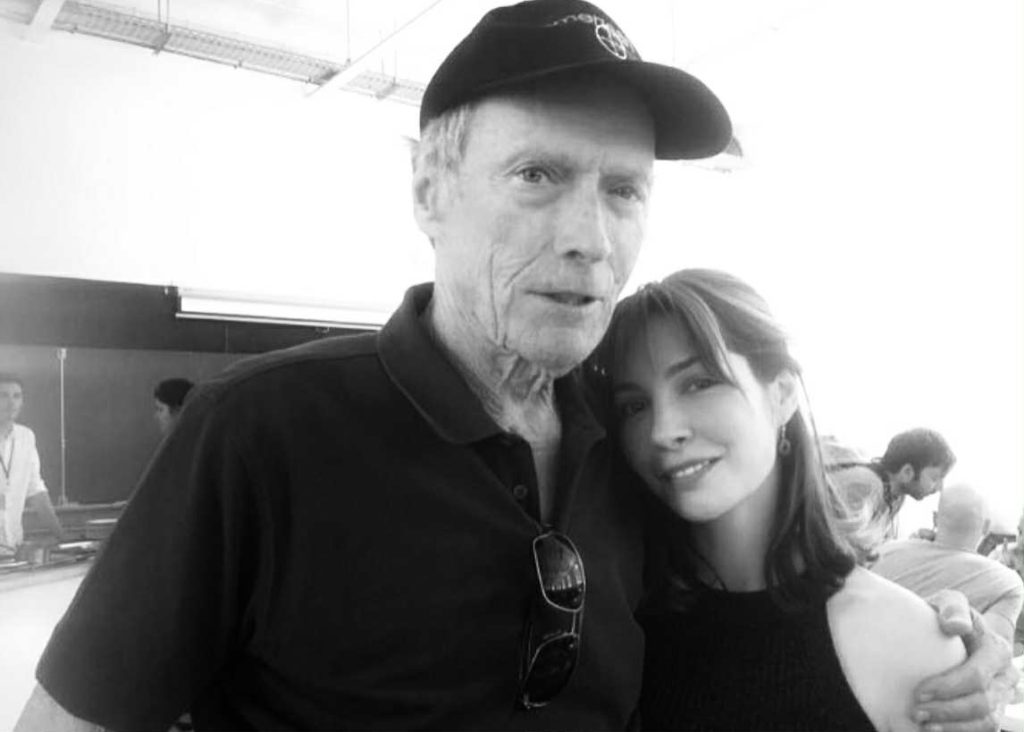
- You also had other prestigious professional experiences, like your role in The 15:17 to Paris. What was it like being directed by Clint Eastwood?
Thank you. I loved meeting Clint Eastwood—he is so funny and works with great gentleness. I only had one day of filming, but I remember every moment. He thought I was German because I played a small barmaid in a Berlin pub, and it’s true that I lived in Germany for 10 years—I barely have an accent. He gives a lot of freedom and space, which is why I think his films feel so human. He had lunch with us, all the actors, and we talked about many subjects—it was fabulous. Seeing a living legend, one of my favorite directors and greatest inspirations, simply talking about our favorite dishes, jazz, sports, and cinema—it was fantastic.
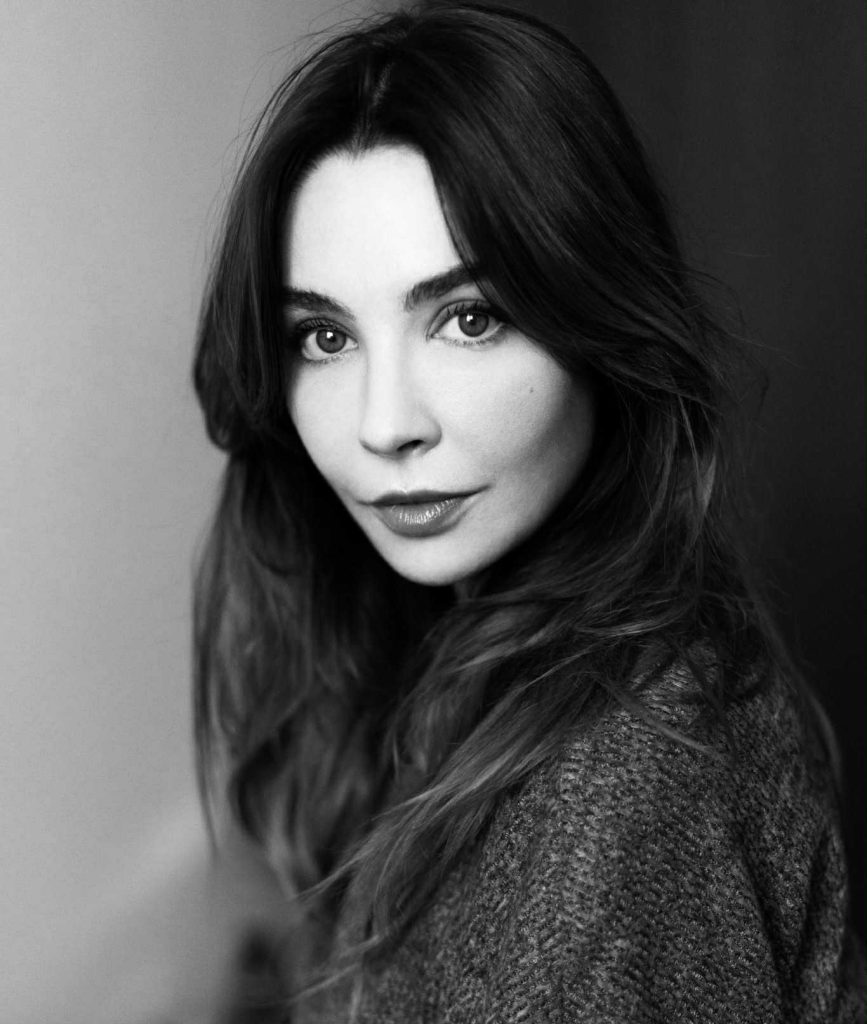
- What projects are you currently working on?
I just finished filming BERLIN BERLIN directed by Olivier Van Hoofstadt with Didier Bourdon—I had a lot of fun; it’s going to be funny. I also filmed L’INFILTRÉE directed by Ahmed Sylla, where I act alongside him, and the TV movie PAPA MALGRÉ LUI for TF1, where I act with Arnaud Ducret. I’ve also done a lot of work for France Télévisions, in the series TOM ET LOLA season 2, ASTRID ET RAPHAËLLE season 6, and the TV movie MEURTRE EN PÉRIGORD VERT. I have also appeared in several short films by Swann Dupont, Gil Gharbi, and was a finalist for the 2025 INTERPRETATION LABELS for my role in the short film DE CELLES QUI GUÉRISSENT, aired this summer on TF1. I have other upcoming projects that I can’t wait to talk about.

